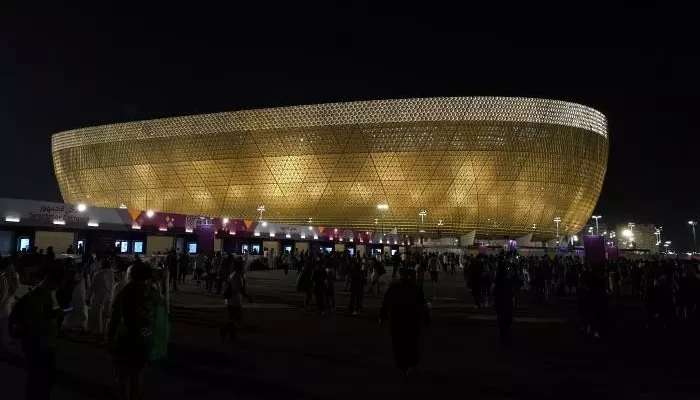FIFA World Cup: Stadiums in Qatar will disappear after the World Cup
The Men's World Cup ended on 18 December in Qatar with one of the most exciting finals in the competition's 92-year history.
 Lusail Stadium
Lusail StadiumIt was an evening of drama that went into extra time and ended with Argentina being crowned world champions.
Qatar invested $220 billion to prepare for the games over 12 years. Of this, $6.5 billion was used to build seven of the most technically advanced stadiums in the world and renovate another.
But what will happen to the stadiums after the tournament?
The government body in charge of hosting the World Cup in Qatar, the Supreme Committee for Delivery and Legacy, has vowed that its stadiums won't experience the same fate as earlier competitions. The Supreme Committee has promised to implement "innovative legacy plans to ensure our tournament does not leave any "white elephants," according to a statement issued by the Supreme Committee's Secretary General Hassan Al Thawadi.
Some stadiums will be demolished and recycled. Others will be downsized, and some will be turned into residential and shopping districts.
Qatar will also host the 2030 Asian Games and is bidding for the 2036 Olympics, to be awarded in 2025. If the Olympic bid is successful, some of the stadiums could be redesigned to meet the needs of different sports.
But before the sledgehammers come into play, Qatar has another party planned: the 2023 Asian Football Championship, which will most likely take place in early 2024 to avoid the sweltering heat of a Qatari summer.
The Education City stadium, which is close to most of Qatar's universities and research institutions, will be available to students and faculty from nine different universities and 11 schools.
The tented upper tier of Al Bayat Stadium will be demolished and replaced by a five-star hotel and shopping mall.
Al Thumama Stadium will be renovated and replaced by a sports clinic and hotel, while it will continue to host unspecified sporting events.
The Fabergé Egg Stadium in Lusail City will be completely transformed into a community centre and residential area with shops, schools, cafés and medical facilities.
<blockquote class="twitter-tweet"><p lang="en" dir="ltr">Tonight's Brazil-South Korea match will be the last fixture ever to be played at Stadium 974. 🏟️ <br><br>The stadium will be dismantled and will disappear completely after the end of the World Cup. 👀💔<a href="https://twitter.com/hashtag/BRA?src=hash&ref_src=twsrc%5Etfw">#BRA</a> | <a href="https://twitter.com/hashtag/FIFAWorldCup?src=hash&ref_src=twsrc%5Etfw">#FIFAWorldCup</a> <br><br> <a href="https://t.co/qIJgb9qzlb">pic.twitter.com/qIJgb9qzlb</a></p>— Football Tweet ⚽ (@Football__Tweet) <a href="https://twitter.com/Football__Tweet/status/1599700853471866881?ref_src=twsrc%5Etfw">December 5, 2022</a></blockquote> <script async src="https://platform.twitter.com/widgets.js" charset="utf-8"></script>
As Qatar backtracks on its ambition to become a sporting events destination, the only stadium that will remain in place and ready to host matches and major tournaments is the Khalifa International Stadium.
Editor's Picks
- 01
Brendon McCullum: England ready to be 'really brave' in team selection for India series
- 02
Diogo Jota inspires Liverpool surge as injuries fail to dampen Premier League lead
- 03
Cameron Norrie ready to go toe-to-toe with the big boys after stellar Australian Open run
- 04
Maxwel Cornet confident of scoring run after opening West Ham account